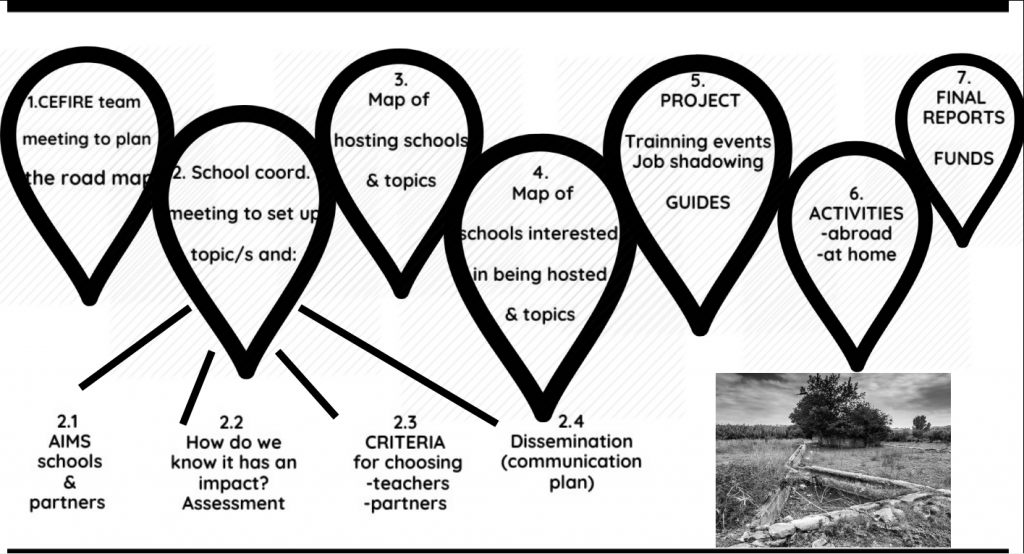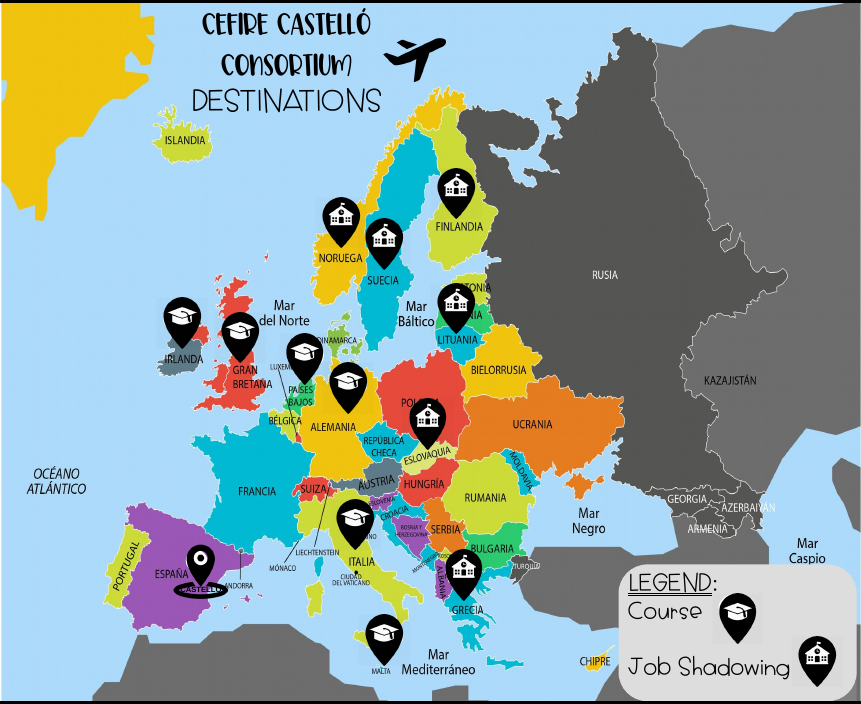CastelloConsortium
A treasure: is the inner country school a lab for innovation? Good practices in European rural schools. The CEFIRE of Castelló has a large number of rural schools which determine part of the training activities carried out. Therefore, this consortium focuses on how to develop Project Based Learning linked to the environment. Why? The … Read more
A treasure: is the inner country school a lab for innovation? Good practices in European rural schools.
The CEFIRE of Castelló has a large number of rural schools which determine part of the training activities carried out.
Therefore, this consortium focuses on how to develop Project Based Learning linked to the environment. Why?
The sociocultural context of this project is rural areas with these common issues: isolation, lack of infrastructures, digital divide and so on , with a ceramics industry and a rural tourism that condition the vocational studies. Our main objective is to encourage reflection coming from the Educative System enhancing a new rurality. In fact, with
this project, we aim at:
- fostering a deepening into active and Student-centred methodologies, that incorporates the environment into the
Curriculum, - developing plans to improve the digital competence of the organisations,
- to incorporate the European feeling of schools and the need of internationalization, using foreign languages as a vehicle for learning in non-linguistic subjects (CLIL).
Therefore, we have selected six paradigmatic schools of this reality and have established selection criteria to define the profile of the teachers who will participate in the mobilities.
The activities within the consortium will be both, job shadowing and course attendance, according to the project issues:
- good practices in vocational studies,
- in Collaborative and Project Based Learning,
- in CLIL,
- in communication skills,
- in DIGCOMP (digital competence of the organizations),
- in Emotional Education
- and in Teaching by Arts for coexistence and mediation.
As a result of the project we hope that there will be an awareness of the participants about the importance of empowering their students to carry out actions that are within the rural world. And at the same time, that they feel the methodological change linked to the environment is essential for the achievement of these goals.
And, finally, the great benefit in the long term is the creation of synergies so that the future generations, now in the
educational system, be the key factor for the change in a new rurality.
Project road map

Destinations.

